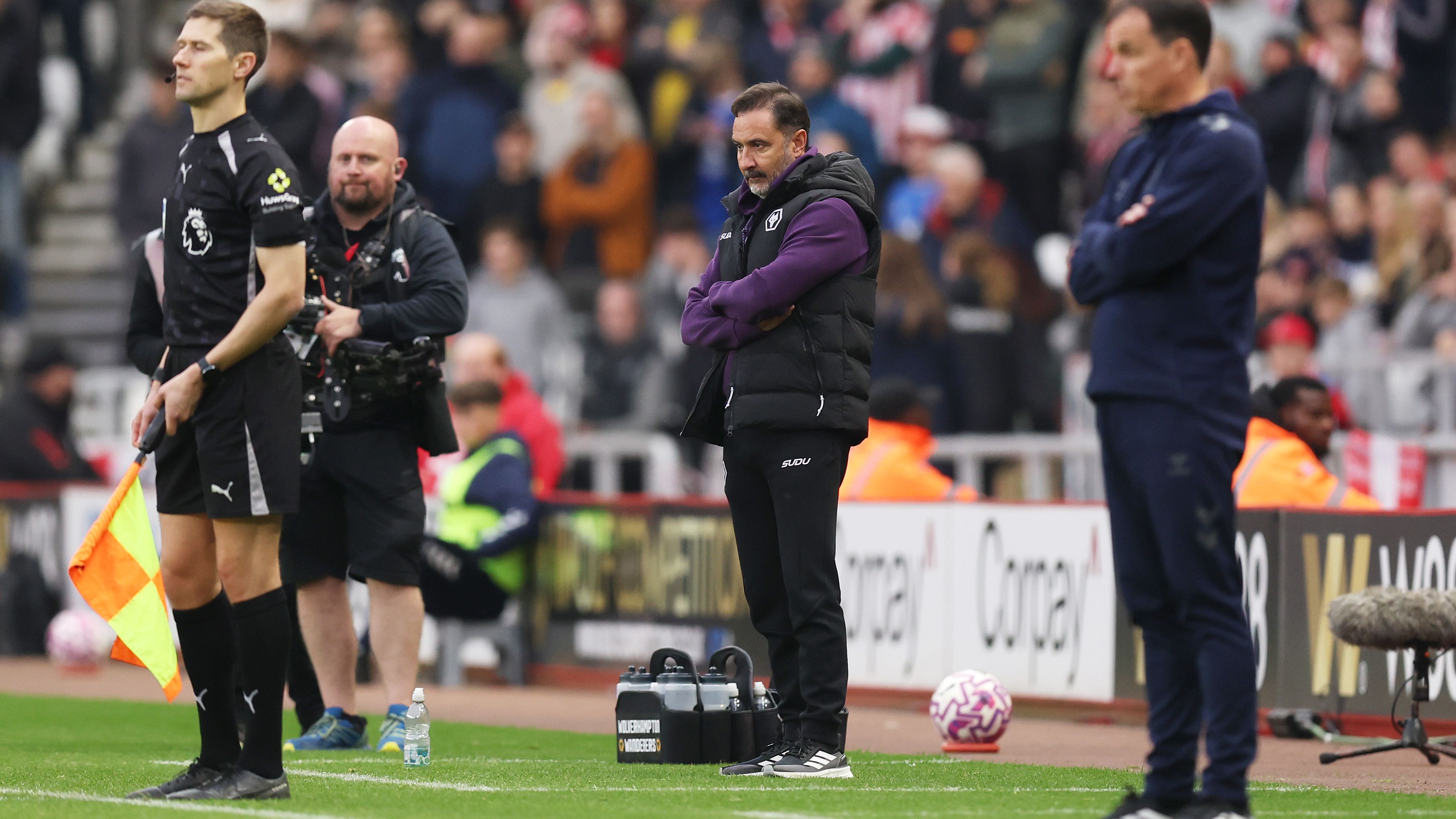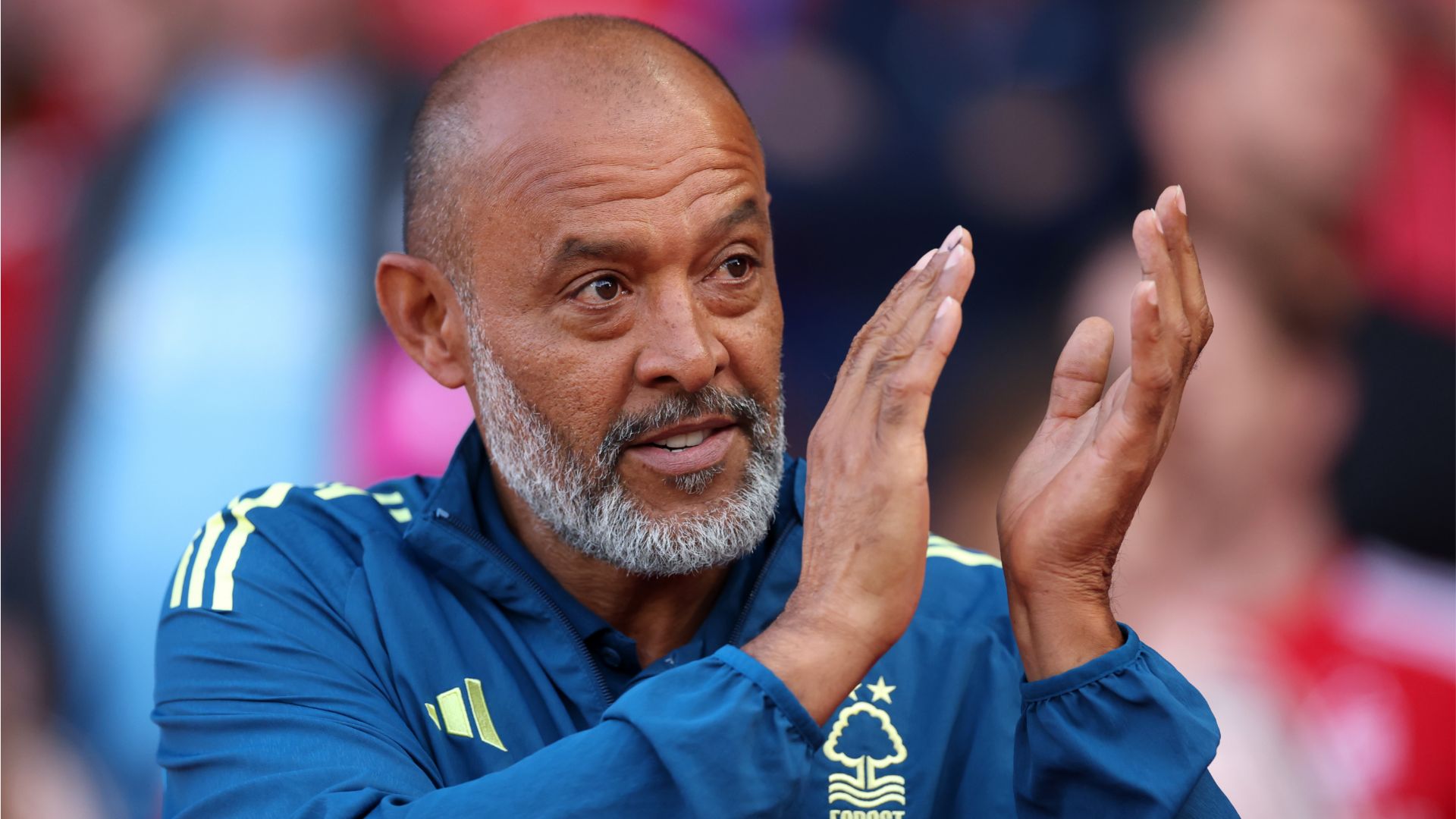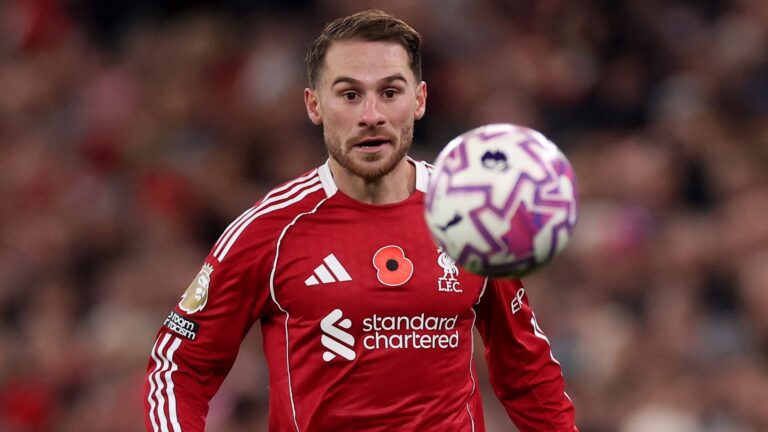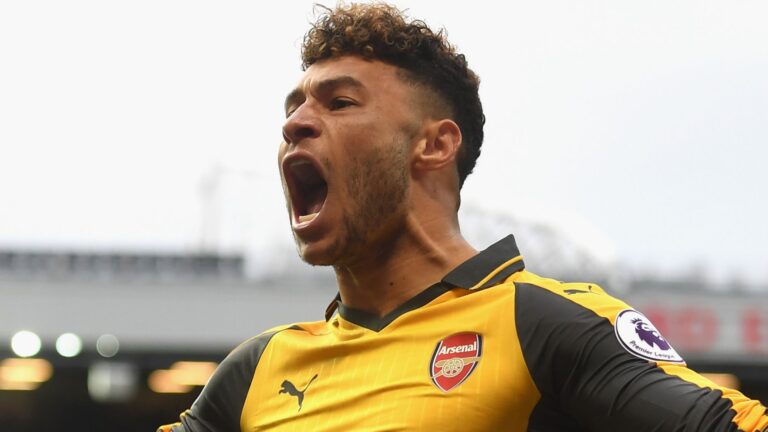Is Vitor Pereira on the Edge? The Pressure Mounts for Wolves’ Manager in the Premier League
Wolves’ manager Vitor Pereira is under intense scrutiny as the Premier League season unfolds, with reports suggesting he has just a handful of games to reverse the team’s poor run and secure his position. Despite recent backing from the club, the Portuguese tactician’s future hangs in the balance amid mounting fan discontent and disappointing results.
Wolves’ Gamble on Pereira’s Leadership
In a surprising move earlier this fall, Wolverhampton Wanderers extended Pereira’s contract for three years, even as the team struggled through an initial string of losses. This choice baffled observers, given the squad’s evident lack of cohesion at the time. The club’s rationale came via a statement from chairman Jeff Shi, emphasizing Pereira’s contributions: “Vitor has delivered a significant boost since joining Wolves. He’s instilled focus, vigor, and a collective drive that sets the stage for future triumphs. His accomplishments last year were outstanding, featuring a streak of six straight Premier League victories and a well-earned nod for the Manager of the Year honor. This is a moment for consistency. Vitor requires the opportunity to gel with the roster and integrate newcomers, and we’ll provide full backing to him and his team.”
Pereira’s Rocky Tenure at Molineux
The coach took over at Molineux in late December and managed to steer the side from near relegation to a safer mid-table spot. Yet, in this season, Pereira has been unable to motivate his squad effectively, putting his role in jeopardy and sparking talks of potential dismissal.
Expert Insights on the Impending Decision
According to former Manchester United scouting director Mick Brown, Wolves may finalize their verdict on Pereira around the November international pause. In the meantime, the manager has four key outings to improve results, beginning with a tough Premier League encounter against Burnley this weekend. Subsequent challenges include a Carabao Cup showdown with Chelsea, plus away league tussles with Fulham and Chelsea.
Brown’s Analysis of the Fixtures Ahead
On the Inside Track podcast, Brown noted: “Wolves could be in serious trouble if performances don’t pick up, potentially leaving them isolated at the bottom and prompting a leadership switch. They’ve got a Carabao Cup tie against Chelsea, a demanding away game at Fulham post-Burnley, and then Chelsea again. These matches look challenging for Wolves and Pereira. If the international break arrives without much progress or points from the next three league outings, the spotlight on him will intensify. That break often allows teams to evaluate and possibly make a change in charge at Molineux.”
Wolves’ Willingness to Move On
Reports from Football Insider indicate that Wolves are not deterred by the financial implications of parting ways with Pereira, who signed his extension recently. Some supporters are already calling for his removal, and the contract includes an undisclosed provision that might ease such a transition, offering no absolute security for the coach despite the extension.
A Season of Turmoil in Premier League Management
The 2025-26 Premier League campaign has barely begun, yet it’s already seen three coaches lose their jobs, highlighting the league’s volatility. Nottingham Forest’s frequent changes have dominated discussions, with the club cycling through two managers already. They initially let go of Nuno Espirito Santo in September, bringing in ex-Tottenham chief Ange Postecoglou. However, the Australian lasted only 39 days before being replaced by Sean Dyche.
Quick Shifts Among Top Clubs
Meanwhile, Nuno Espirito Santo quickly returned to the Premier League elite, stepping in for Graham Potter at West Ham after the latter’s dismal start led to his exit. This pattern underscores the high stakes and impatience in England’s top division.



The Pressure on Premier League Managers
In the high-stakes world of Premier League football, a manager’s job can hang by a thread, especially when results aren’t going their way. Picture this: a top-flight boss facing mounting criticism from fans and the boardroom, with just four key matches to prove their worth. This scenario plays out all too often, turning the Premier League into a pressure cooker. Let’s dive into what puts managers at risk and how they can fight back, drawing on real insights from the league’s official data.
Common Reasons for a Manager Being at Risk
There are several factors that can put a Premier League manager under the microscope. Poor team performance is the most obvious one – think a string of losses, low goal tallies, or defensive lapses that leave fans scratching their heads. But it’s not just about wins and losses; other elements like fan unrest, board expectations, and even off-field issues can amplify the pressure.
- Slumping Results and Stats: If a team’s stats start to dip, such as fewer goals scored or more conceded, it’s a red flag. For instance, checking current Premier League statistics can reveal trends that signal trouble, like a drop in clean sheets or passing accuracy[başvurmak:[başvurmak:https://www.premierleague.com/en/stats].
- Transfer Window Failures: Sometimes, the roots of a crisis trace back to the summer transfer period. If key signings don’t pan out or the squad lacks depth, managers might find themselves short-handed. Looking at the latest transfer news can highlight how clubs build their teams, which directly impacts on-field success[başvurmak:[başvurmak:https://www.premierleague.com/en/transfers].
- Fan and Media Backlash: In today’s social media era, a few bad games can lead to viral campaigns calling for a change. Managers need to navigate this carefully, as public opinion can sway board decisions faster than ever.
The Four Crucial Matches: A Breakdown
When a manager is on the brink, those next four matches become make-or-break moments. These games are often selected based on their winnability or importance, like clashes against direct rivals or teams in the relegation zone. Analyzing upcoming fixtures is key to understanding the challenge.
- Fixture Difficulty Analysis: Start by looking at the opponents. Is it a home game against a mid-table side or an away trip to a top team? Premier League stats can help gauge this – for example, if your team’s away form is weak, that could spell disaster[başvurmak:[başvurmak:https://www.premierleague.com/en/stats].
- Historical Context: Past results matter. Managers might reference how their team performed in similar situations last season, using transfer data to see if new players have made a difference[başvurmak:[başvurmak:https://www.premierleague.com/en/transfers].
- Key Metrics to Watch: Focus on goals, possessions, and defensive stats. If a manager can secure at least two wins or draws in these four games, it might buy them more time.
Strategies to Secure the Position
So, what can a manager do when the clock is ticking? Turning things around requires smart, proactive steps that address both tactical and squad issues. Let’s break this down into actionable strategies.
Tactical Overhauls
One of the quickest ways to shake things up is through tactical changes. A manager might switch formations – like going from a 4-3-3 to a more defensive 5-4-1 – to counter specific threats in those four matches. This isn’t just guesswork; it’s backed by analyzing opponent stats to predict outcomes.
- Adapting to Opponents: Use Premier League data to scout enemy weaknesses, such as high defensive lines that your fast attackers can exploit.
- In-Game Adjustments: Emphasize real-time decisions, like substitutions that freshen up the attack, to keep the momentum going.
Player Management and Motivation
At the heart of it, football is about people. Managing players effectively can make all the difference in high-pressure situations.
- Rotating the Squad: With transfer windows in mind, if recent signings haven’t gelled, rotating players from the bench could inject new energy. This ties into how clubs handle their depth during transfer periods[başvurmak:[başvurmak:https://www.premierleague.com/en/transfers].
- Boosting Morale: A conversational chat in the locker room or public statements can rally the troops. Managers like Jurgen Klopp have mastered this, turning fan support into on-pitch fuel.
- Data-Driven Selections: Rely on stats to pick the right lineup – for example, starting players with strong recent form in key positions.
Measuring Success Through Stats and Transfers
To gauge whether a manager is on the right track, it’s essential to monitor ongoing stats and how past transfers are performing. This isn’t just about the immediate four matches; it’s about building for the long term.
Key Performance Indicators
Dive deeper into specific metrics that can indicate improvement. For instance:
- Goals and Assists: Track if the team’s offensive output increases in these games, using official stats as a benchmark[başvurmak:[başvurmak:https://www.premierleague.com/en/stats].
- Defensive Improvements: Look for more clean sheets or reduced shots conceded, which could signal that tactical changes are working.
The Role of Transfers in Recovery
Transfers can be a double-edged sword. If a manager secured promising players in the summer window, leveraging them now could be the key to survival. On the flip side, if integrations are slow, it might highlight deeper issues.
- Assessing New Signings: Review how recent additions are performing in stats, like their contribution to goals or assists.
- Future-Proofing: Even in crisis mode, managers should think ahead – perhaps eyeing the next transfer window to address squad gaps.
In the Premier League, where every match feels like a final, these four games could define a manager’s legacy. By focusing on smart strategies, data insights, and fan engagement, there’s always a path to redemption. Remember, it’s not just about surviving; it’s about thriving in one of the world’s most competitive leagues.









